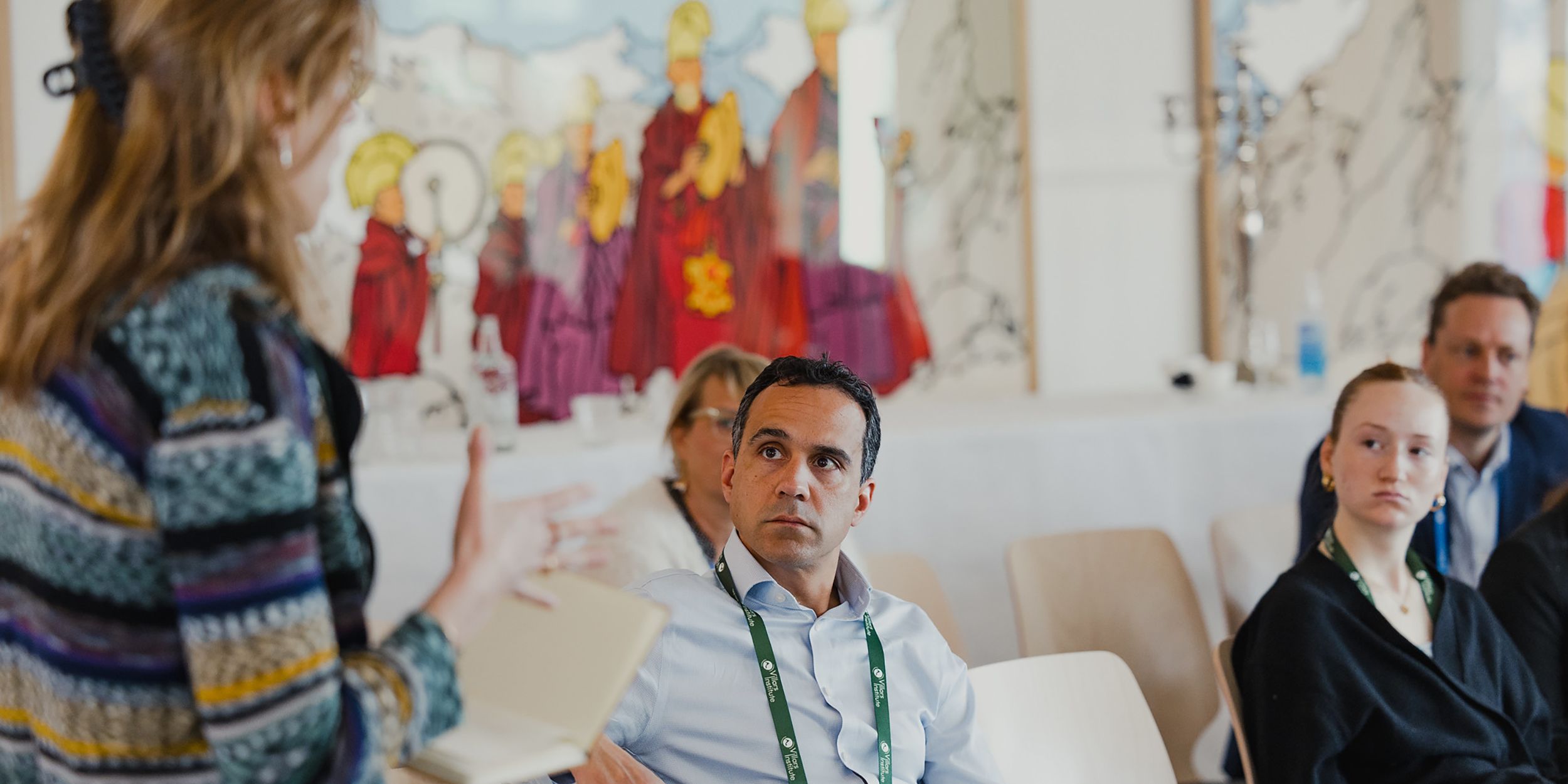The Ideas
“What should philanthropists do in order to address the issue of economic systems drivers of nature loss?”. Seeing that only 2% of philanthropy currently goes into climate related issues, the discussion was focused around what exactly philanthropists can do in order to increase that percentage through efficient methods. A large area of focus was the issue of deforestation. The need to work with local communities was stressed, although it was noted that it is unrealistic to be able to work with enough local communities to fully conserve the rainforests. However, discussion from participants later circled back to this point, bringing suggestions of how this link between philanthropists and the local communities could be carried out.
A big emphasis was put on the goal to conserve and protect, especially seeing that 40% of environmental investments are mitigating threats, not investments to protect. The experts stressed the importance of structural financial reforms and the advancement of an ecosystem accountability system. The large government spending on environmentally harmful subsidies was identified as a critical and widespread concern by both experts and participants, with the world spending at least 1.8 trillion a year (2% of the global GDP) on these harmful subsidies. Most of these harmful subsidies are in fossil fuels and agricultural sectors. Many of these subsidies are not currently transparent. By 2025, countries are supposed to report transparently on where exactly these subsidies are going to. But given that this is only next year, the expert views this as rather unrealistic.
How to reform subsidies was also an issue discussions later circled back to. Specific strategies to increase nature accountability were discussed, such as including natural capital on balance sheets and ensuring finance systems are integrally connected with public and political systems. The role of philanthropy was also explored, with a focus on directing funds towards effective environmental protection and community empowerment.
The Perspectives
Participants were actively engaged in discussions about practical measures to enhance ecosystem accountability, by transitioning from voluntary to mandatory systems and leveraging scientific research to inform policy. This would provide incentives for more philanthropists, as well as investors and companies, to engage in climate-related issues. The importance of having courage, in this case specifically the courage to lobby, was also highlighted. In regards to financial systems and their involvement, participants identified a central issue in the disconnect between local impact and the finance system. The need for traceability, seeing that there is missing data for investors, was highlighted, which also connects to the previous point of accountability. This traceability should be on a local, as well as national level.
Another recommendation made was to work more with AI to start suggestions on initiating effective plans for the financial systems. The need to include economists in this discussion was also brought up. However, participants also highlighted that there is a positive effort from some financial systems and banks. The issue of harmful subsidies was further discussed by participants. Given that this is a very complex issue, the need for many different actors being involved in discussions on this issue together was acknowledged. Recommendations of actors that should be present during these kinds of conversations were multilateral banks, civil society, governments analytics, scientists, NGOs and the actual farmers or fishers. Countries that have shifted their subsidies from harmful to neutral or positive, such as New Zealand, were also brought up as positive examples, demonstrating a way to reform these subsidies instead of eradicating them.
Lastly, participants focused on how to engage and support local communities in conservation efforts, and the role of philanthropy in providing legal and educational support. Legal and educational support enables local communities to protect their land and develop. The need to understand local contexts to address the challenges of leadership and corruption was also highlighted. Philanthropy was viewed as a way to mitigate friction and support the local communities.
To conclude, an increased awareness of the role philanthropy can play in solving environmental challenges was imparted. There were many suggestions of where and how philanthropy could be more engaged, leaving participants with hope for the role of philanthropy in addressing the issue of economic systems drivers of nature loss.



